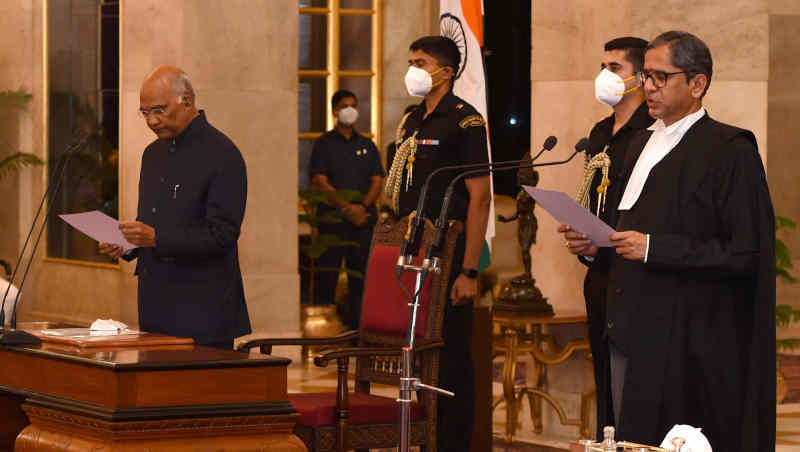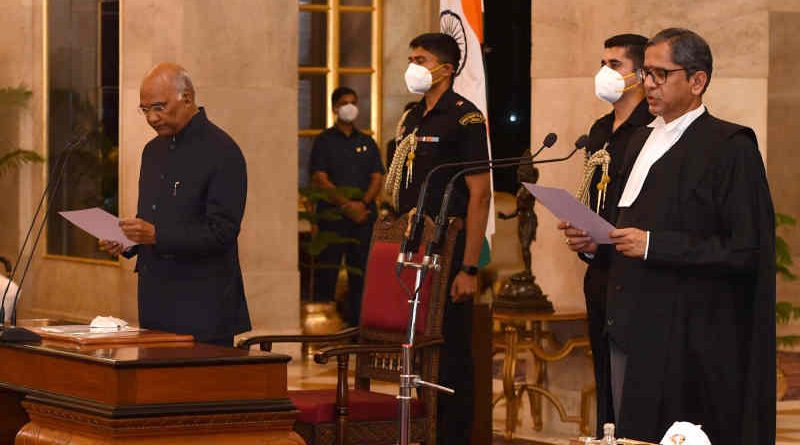How Indian Judiciary Crumbled Under Covid Calamity

The higher courts have been holding slow virtual hearings during the coronavirus period.
By Rakesh Raman
As the Indian judiciary has been largely functioning as the extended arm of the government, most courts have lost their relevance during the past few years. The courts have particularly abdicated their responsibility in the ongoing coronavirus crisis.
Instead of holding the politicians and bureaucrats responsible and taking punitive actions against them, the courts have only issued some censure statements. In April, for example, the Madras High Court said that the Election Commission should face murder charges for allowing crowded election rallies. Then the court criticized the Indian government for mishandling the Covid situation.
The news reports have only been carrying phrases such as “court slams…,” “court censures…,” “court raps…,” or “court criticizes…” But they did not say “court convicts…” for any government functionary who failed to perform their duties responsibly during the pandemic. The high courts as well as the Supreme Court have made loose statements against the governments for their negligence. But such statements have no judicial relevance.
The courts and judges, however, never tried to review their own performance which has been deplorable during the health crisis. Since Indian lawyers and judges are working in a casual, free-wheeling manner, the Indian legal system is plagued by random judgments and long delays.
As a result, there is a backlog of nearly 4 crore (40 million) pending cases in the Supreme Court, various high courts, and the district and subordinate courts. Reports suggest that the pending court cases in India have been rising rapidly during the past one year when the courts became even more sluggish during the coronavirus outbreak.
The number of pending cases reached nearly 40 million from a level of 36.5 million in February 2020. The number of unresolved litigations in the country was 35.9 million in November 2019.
The Supreme Court of India has seen a 3.6% rise in pending cases between February 1 and August 31, 2020 to reach 62,054. The pending cases in high courts have gone up by 12.4% between January 29 and September 20 of 2020 to reach 5.15 million. District and subordinate courts recorded a 6.6% increase to touch 34 million cases in the same period.
The higher courts have been holding slow virtual hearings during the coronavirus period. Since the lower courts have scarce digital resources, they could not set up virtual courtrooms. As a result, the situation has gone from bad to worse in Indian courts.
In order to overcome the pendency, the Indian courts – where judges and lawyers are not quite qualified – must hire tech professionals to automate all judicial processes. They should also hire domain experts to help judges understand the cases in emerging areas such as environment, white-collar cyber crimes, and crimes related to Covid-19.
The judges must realize that they have to pronounce judgments based on law and they are not supposed to act as religious preachers to issue loose condemnation statements against the culprits.
By Rakesh Raman, who is a national award-winning journalist and social activist. He is the founder of a humanitarian organization RMN Foundation which is working in diverse areas to help the disadvantaged and distressed people in the society.





